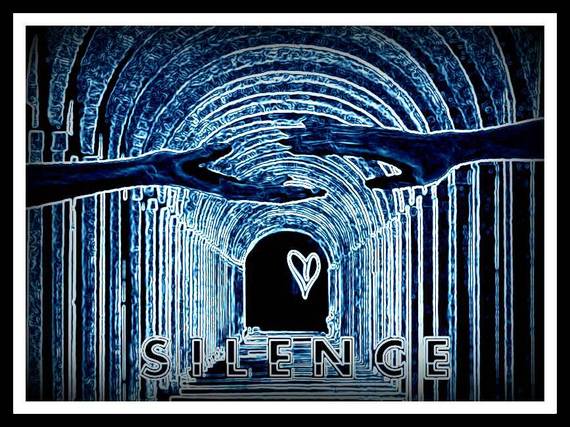
My raw, emotional response when I see the words Dear White Woman (or something similar) is to feel defensive, resentful, hurt or misunderstood. Before I even read it, I suspect the seemingly friendly salutation holds no real affection since the implication is we are all just alike.
Perhaps I would be more open to it if there were some specifics: a letter to the white woman who did or said __________. Instead, I feel like a preschool child who loses recess because one kid wouldn't stop talking. Group discipline is not for grown folks.
Yes, I take it personally. In that moment, I'm 8 years old and my Dad just called me out by my first, middle and last names--a surefire sign that what comes next is not going to feel good. I want to put my fingers in my ears and pretend to shut out the sound. In reality, I can hear you loud and clear--so I come anyway with my heart in my hand.
I have learned to carefully place all of my defenses there in the hall (next to my white privilege) before I open the empathy door and boldly walk through. Often, I learn something; other times I feel like I took an undeserved beating for one of my siblings.
Recently, I read a different kind of message--one that refueled my soul and renewed my faith in the promise of sisterhood. What was different? Heather Barmore didn't tell me how to act, what to say or how to feel. She issued a call and waited for a response.
She went right for the emotional jugular--the complicated why. She invited white women to walk across the hall and come on in; but you better bring your honesty to this potluck of pain.
What emerged from this jam session was a diverse choir of vulnerable, painfully honest voices where silence had previously stood. She was singing a different song; blending genres, writing the riff and composing the bridge.
It wasn't the specific question that moved me: Why don't my white friends talk about race? I don't have an answer to that one, because I always have--at length. It was the fact she asked it within her own circle, shared the responses (and her own feelings directly), with brutal honesty and vulnerability.
She opened the door to that silent, invisible hallway between blackness and whiteness, cried out into the abyss, and was open to the voices that emerged. Somewhere in that space is our shared womanness, our humanness. I believe in the power of words--to heal, hurt, educate, persuade, tear down, empower, or most importantly, connect.
I have been asked why about a lot of things related to race, but never about silence. As a white woman studying African-American Literature and History, I learned some tough lessons. My motives were questioned by classmates, family members and friends of every color.
The more I learned the more fearlessly vocal I became. It hasn't been without consequence. I lost people who once mattered to me, but never more than my commitment to human equality.
If you are going to talk the talk, you have to walk the walk--and there will always be people ready and willing to trip you up. There are a multitude of reasons to remain silent about issues of race, but even more compelling reasons not to.
As Dr. Martin Luther King, Jr. so powerfully stated, "Our lives begin to end the day we become silent about things that matter," and "In the end, we will remember not the words of our enemies, but the silence of our friends." What is your silence saying about you?
Here is my own "letter" to women of every color. Receive it. Discard it. That's the beauty of free will. But whichever path you choose for sisterhood, own it. Name it. Give it a voice. Then consider these words from the Prayer of St. Francis of Assisi:
Grant that we may not so much seek
To be consoled as to console,
To be understood as to understand,
To be loved as to love.
Dear Sisters:
1. Teach each other what makes you feel loved, respected and heard; also share what causes you pain and why.
2. If someone offers to educate you on a topic, become a willing student. Don't assume you already know the answers.
3. Ask the tough questions and be open to hearing the tough answers.
4. Someone may misspeak; call her out on it but allow everyone the space to learn from mistakes.
5. Help other women feel what you feel. Radical empathy is a requirement for solidarity.
6. Don't ask one woman to speak for anyone other than herself and don't speak for her.
7. Be ready to fearlessly and openly defend your sisters--of every color. Your silence is deafening.
8. Expand your circle to include women who don't look, love or pray like you.
9. Be kind, listen actively and respect each other.
10. Assume nothing--you don't know a damn thing about another woman's journey until she personally shares it with you.
Like biological sisters, spiritual sisters disagree. We argue, we vent and sometimes we hurt each other deeply. We can still choose to build a diverse tribe of like-minded women, fiercely committed to radical, empathetic sisterhood.
If you are interested in continuing the conversation and sharing your stories, please join us at Because We Are Sisters. The only rules are take the masks off at the door, show respect and keep it real. Don't be afraid to ask why--or to answer.
What are some things that make you feel hurt, angry or distrustful toward other women you encounter in your day-to-day life? How do you respond? Do you suffer in silence, rant to your friends or do you speak up directly? Do those negative experiences have an impact on how you relate to certain groups of women?